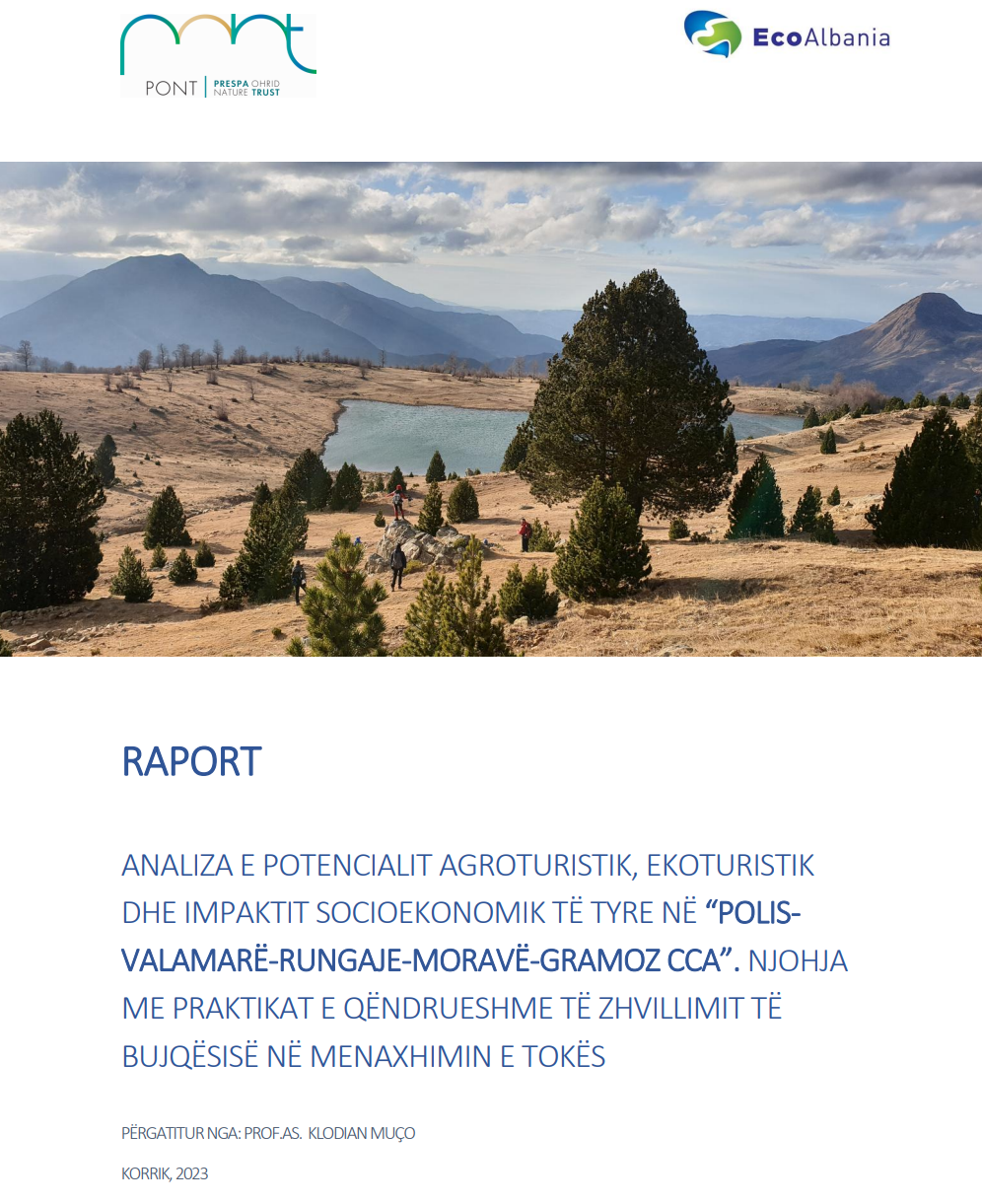Exploring Ecotourism and Agritourism Potential in the Polis-Valamare-Rungaje-Moravë-Gramoz Ecological Corridor
The Polis-Valamare-Rungaje-Moravë-Gramoz ecological corridor holds significant promise for sustainable economic development through ecotourism and agritourism. This report reveals the findings of a comprehensive socio-economic assessment aimed at harnessing the potential of this ecological corridor. By exploring into the intersection of local resources, policies, and best practices, the study lays the groundwork for nurturing a harmonious coexistence of nature and socio-economic progress.
The report starts with an inclusive overview of the demographic, social, economic, and infrastructural landscape of the Polis-Valamare-Rungaje-Moravë-Gramoz corridor. This initial exploration highlights the region’s distinct orientation towards agriculture and natural tourism. The interaction of rich lands, diverse ecosystems, and captivating landscapes establishes a strong foundation for the development of agritourism and ecotourism.
The subsequent section of the study reviews into the tourist potential characteristic within the ecological corridor. This analysis casts light upon the challenges encountered in fostering the growth of agritourism and ecotourism. Furthermore, the report clarifies the strategic measures adopted by local institutions to steer the region toward a trajectory of long-term sustainable development.
Central to this sustainable development vision is the fusion of agricultural capacity with tourism initiatives. Local institutions have devised strategic plans that support this synergy, recognizing the unexploited potential residing in the intertwining of agrotourism and ecotourism. The ecological corridor claims a wealth of natural resources and protected areas, thereby harboring abundant opportunities for diversifying tourism offerings and linking them intricately with agriculture.
The socio-economic assessment of the Polis-Valamare-Rungaje-Moravë-Gramoz ecological corridor offers insights into the promising future that lies ahead. By aligning agricultural ability with ecotourism potential, this region has the power to emerge as an example of sustainable development. While challenges persist, strategic collaboration between institutions, investment in infrastructure, and a concentrated focus on human capital can pave the way for a thriving future where nature and socio-economic growth coexist harmoniously. This report serves as a call to action, inviting stakeholders to embark on a transformative journey toward a brighter, sustainable tomorrow.
Disclaimer:
“This report has been completed within the framework of the project “Improve Sustainability of South-Eastern CCAs in Albania – ISCCA,” implemented by EcoAlbania and financed PONT. PONT’s support for the preparation of this publication does not constitute an endorsement of the content, which reflects only the views of the authors. PONT cannot be held responsible for any use of the information contained in this report.”


